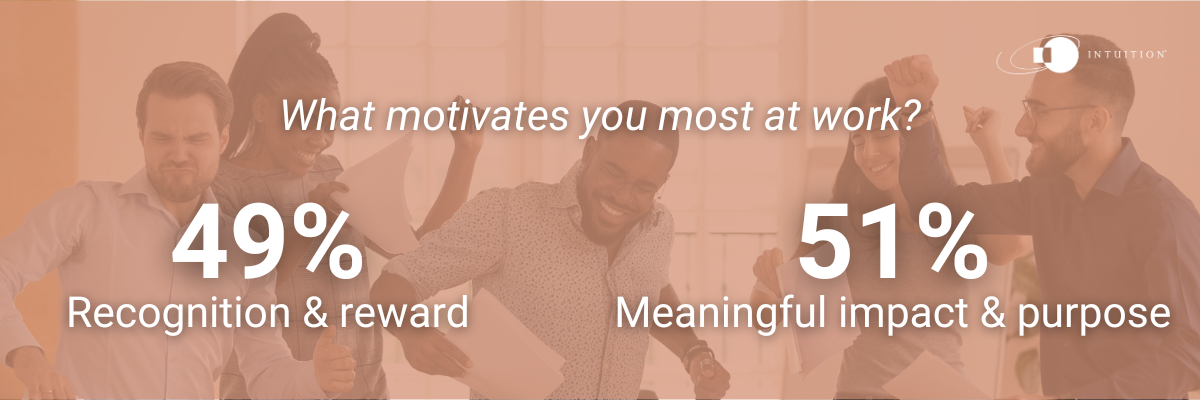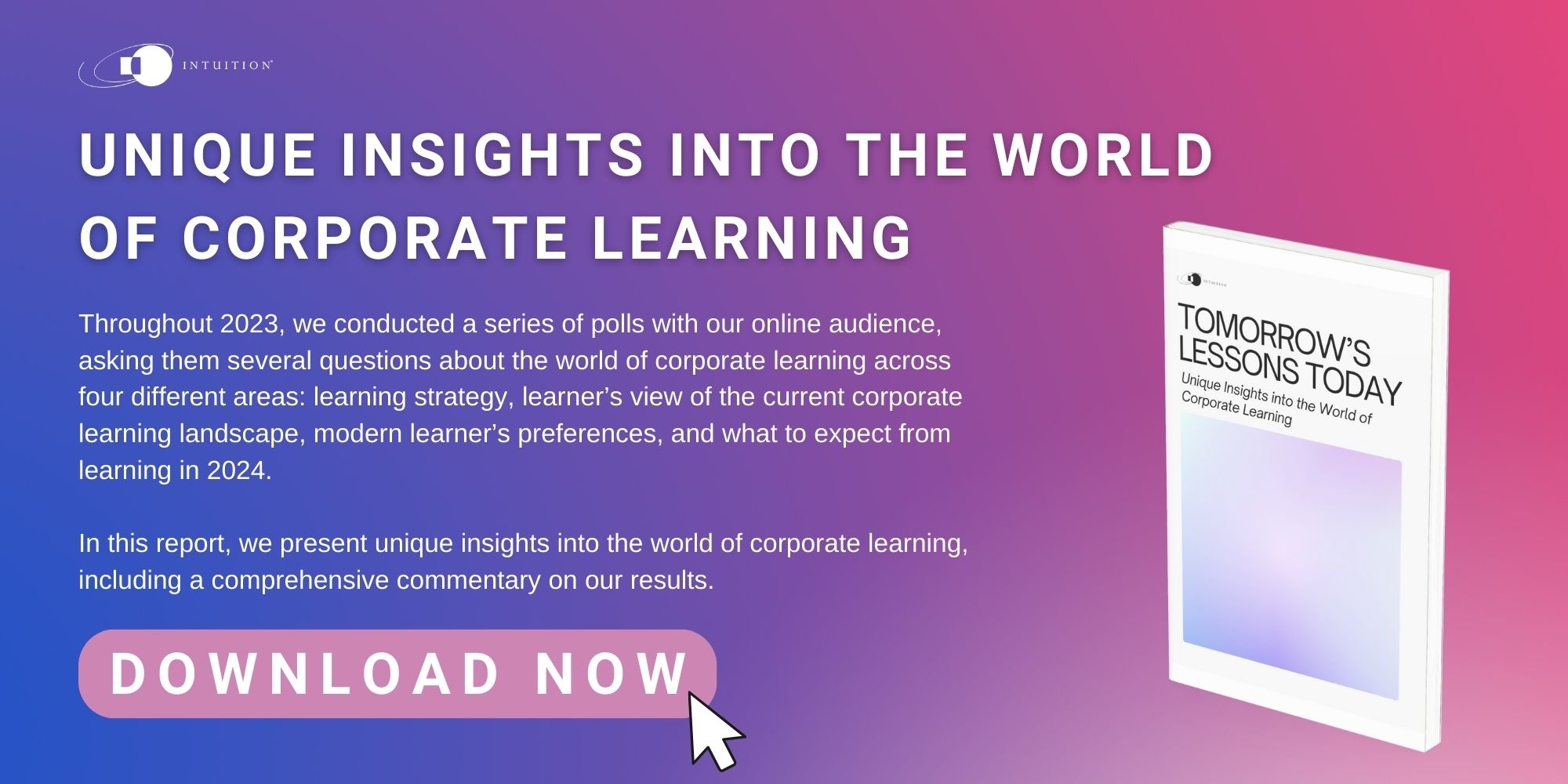Motivation at work: Recognition Vs meaning
This article, ‘Motivation at work: Recognition Vs meaning’, is taken from our report ‘Tomorrow’s Lessons Today: Unique insights into the World of Corporate Learning’. Throughout 2023, we asked our online audience a series of questions relating to corporate learning with some interesting results.
To access the full report, click here: Unique Insights into the World of Corporate Learning

Understanding what motivates employees is crucial for creating a productive and engaged workforce.
Here, we explore these motivations, highlighting their significance and providing actionable insights for organizations to foster a motivated and fulfilled workforce.
Understanding motivations: Recognition and reward
Recognition and reward emerged as a significant motivator for 49% of the respondents in our poll. Recognition can take various forms, including verbal praise, awards, promotions, and financial incentives. When employees feel valued and recognized for their hard work, they are more likely to be motivated, engaged, and committed to achieving their goals.
The power of recognition
Recognition goes beyond mere words of appreciation. It has a profound impact on employee morale, job satisfaction, and overall well-being. When employees receive recognition, it reinforces their sense of belonging and boosts their confidence. It also creates a positive work environment where achievements are celebrated, fostering a culture of excellence and continuous improvement.
Implementing effective recognition programs
Organizations can implement effective recognition programs to harness the power of acknowledgment and reward. Here are some strategies to consider:
- Regular feedback and praise: Managers should provide timely and specific feedback to recognize employees’ accomplishments and highlight areas of growth.
- Employee appreciation events: Organize events or ceremonies to showcase outstanding contributions and achievements.
- Incentives and rewards: Offer tangible incentives such as bonuses, gift cards, or additional paid time off to recognize exceptional performance.
- Peer-to-peer recognition: Encourage employees to recognize and appreciate their colleagues’ efforts, fostering a culture of mutual respect and support.
By implementing these strategies, organizations can create a culture of recognition that motivates employees to perform at their best.
Understanding motivations: The significance of meaningful impact and purpose
The second major motivator identified in our poll was meaningful impact and purpose, which resonated with 51% of the respondents. Employees are driven by a desire to make a difference and contribute to something meaningful. When they understand how their work aligns with the organization’s mission and purpose, they feel a sense of fulfillment and motivation.
Finding meaning in work
Employees seek meaning in their work by understanding how their contributions impact the organization, its customers, and society as a whole. This understanding helps them connect their daily tasks to a larger purpose, giving their work a deeper sense of significance.
Cultivating a sense of purpose
Organizations can cultivate a sense of purpose among their employees by:
- Communicating the organization’s mission: Clearly articulate the company’s mission, values, and long-term goals to help employees see the bigger picture and understand how their work contributes to it.
- Providing opportunities for growth: Offer professional development programs and continuous learning opportunities that enable employees to develop new skills and contribute in more meaningful ways.
- Encouraging social impact initiatives: Engage employees in corporate social responsibility activities, allowing them to make a positive impact beyond their daily work.
- Creating a positive work environment: Foster a supportive and inclusive culture that values diversity, promotes collaboration, and encourages innovation.
By fostering a sense of purpose, organizations can inspire and motivate employees to go above and beyond in their roles.
Actionable insights for organizations
Based on the poll results and our deep-dive into employee motivation, here are some actionable insights for organizations looking to enhance motivation and engagement in the workplace:
- Personalize recognition: Understand the unique preferences and strengths of each employee to tailor recognition efforts accordingly. What motivates one employee may not work for another.
- Promote a growth mindset: Encourage employees to develop a growth mindset, where they embrace challenges, seek learning opportunities, and strive continuously for improvement.
- Provide clear career paths: Offer transparent career development paths and opportunities for advancement to keep employees motivated and engaged.
- Align individual goals with organizational objectives: Help employees understand how their individual goals and tasks contribute to the organization’s overall success, fostering a sense of purpose and motivation.
- Create a culture of feedback: Regularly provide constructive feedback and create opportunities for open dialogue between managers and employees. This feedback loop promotes growth and allows for course correction when needed.
- Offer continuous learning opportunities: Invest in training and development programs that empower employees to expand their skills and knowledge, enabling them to take on new challenges and responsibilities.
By implementing these strategies, organizations can create a motivated and engaged workforce that drives success and fosters a positive work environment.

Summary
- By understanding and addressing these motivators, organizations can create a work environment that inspires and empowers employees to achieve their full potential.
- Remember, each employee is unique, so it is essential to tailor motivation strategies to individual needs. By doing so, organizations can unleash the full potential of their employees and create a culture of excellence and continuous improvement.


